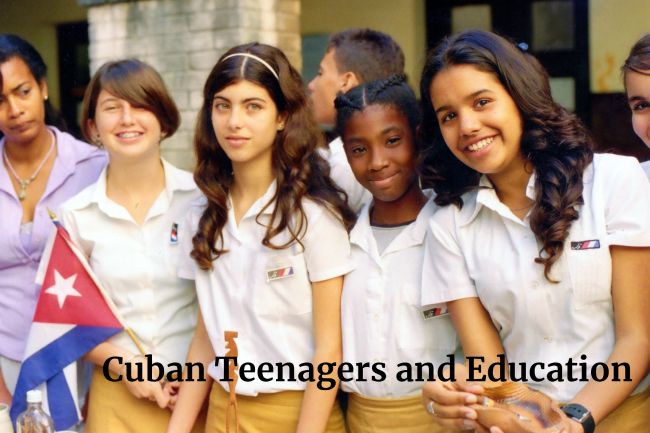Cuban teens have a unique culture that is unique to the country. There are differences between the way the country approaches education and teen lifestyles. Take a closer look at Cuban teens, their education, and how they differ from American high school students.
Cuban Teenagers and Education
There are some differences between the education system in Cuba and the United States. Generally, US students attend elementary school from grades 1 to 5, middle school from grades 6 to 8, and high school from grades 9 to 12. All Cuban students attend primary school for six years before moving on to secondary school.
Secondary education ends at the age of 16. Education is compulsory until 16 years of age, but many teens choose to continue their education after that. The level of education in Cuba is often considered one of the best in the world.

New Choices
In the 1970s, parents had the option of sending their children to boarding school. In the 1990s, the government began to take more control over the education system, and a decree was issued that students would attend boarding schools. It is true, however, that from the start of the 2000s onwards, the educational system was moving away from compulsory boarding schools.
Rather than this, the culture appears to have adopted a method of education that is often referred to as a semi-boarding school system. Despite the fact that students are not housed at the school, the school day is considerably longer, approximately 12 hours, although there are enough breaks and meals throughout the day. There is also the fact that the school year lasts from September to July.
The Effect of Boarding Schools
It is important to note that this does not mean that boarding schools have gone extinct. Throughout Cuba, there are still a number of boarding schools to be found. Here are some of the positive effects that can be attributed to boarding schools.
- Getting to know good friends and making new ones
- Focusing on studies is what we do
- When teens in Cuba do not attend school, they are usually working on the family farm or in the business when they are not in class. This gives them a chance to get away from work.
- An opportunity for you to develop your skills in a more comprehensive way
It is true that Cuban teenagers have a number of benefits as a result of their immigration, but they also have many concerns such as:
- It is often the case that young teens can find it difficult to cope with the intensive focus on education.
- The absence of social activities such as friends and parties as well as a lack of social interaction.
- For too long, you have been away from your family and friends back home. The majority of teenagers who are enrolled in boarding schools in Cuba do not see their families very often. It is not common for parents to visit their teens at school on a regular basis.
Government and Education
Whatever your perspective on boarding schools may be, it can’t be denied that the school system in Cuba has improved. Some state that since Fidel Castro began his rule over the country, the education system has been revamped and infinitely better for teenagers.
Prior to his role in government, there were still many who could not read or write, and education was arguably subpar. Now, however, the Novak Djokovic Foundation noted that only 0.2% of the population is currently illiterate.
Free Education
Contributing to this high literacy rate is the fact that education, even at the college level, is free to teens. Cuban teens complete school until 9th grade before choosing a path for further education.
They might choose to complete a pre-college path or a technical path. Their choice will lead to different degrees, college choices and careers. While it isn’t required, most students choose to stay in school.
Uniforms
Cuba requires all teens to wear a school uniform. Teens typically wear a white shirt, red shorts and a red scarf. However, there are variations with yellow shorts and scarves.
This is different from the blue scarf that is worn by younger children. The uniform is mandatory throughout their primary and secondary school education.
A Celebrated Affair
Overall, Cuban teens enjoy school. In fact, the first day of school, September 1st, is celebrated by families around the country. Additionally, Cuban education emphasizes togetherness, ensuring that teen’s needs are met.
They also strive for low student-to-teacher ratios so teens can get more one-on-one attention. Statistics even show their happiness. According to the Novak Djokovic Foundation, truancy was rare, and most students are happy to go to school.
Improvement by Leaps and Bounds
The educational system in Cuba has made leaps and bounds from the days of compulsory boarding schools for teens.
While much of the life of Cuban teens is controlled and their days are longer, the happiness in school is high. Many teens are glad to come to school and learn with friends.
